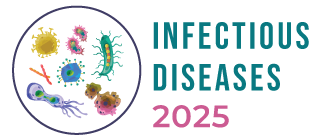Infectious Diseases 2025

Urban Zoonoses Ministry of Health of the Province of Buenos Aires, Argentina
Abstract:
Rabies is endemic in the air cycle in the province of Buenos Aires. Insectivorous bats are the main natural reservoirs, so that through the bite of an infected animal it can transmit rabies to other non-vaccinated species, for example dogs and cats, what is called a "spillover" phenomenon. An example of this was the human fatal case in Buenos Aires, Argentina in 2021, where a person dies from rabies variant 4 (originating from the chiropteran species Tadarida brasiliensis) transmitted by a sick cat. In 2023, 30,300 people were bitten by canines and felines who received early care, of which 39% required post-exposure protocol with Vero cell culture vaccine using the modified Essen or Zagreb. In addition, 11,140 rabies observations were made on biting animals. Another prevention strategy is the georeferencing of rabies-confirmed bats to assess the location of viral circulating colonies, and they achieve in these high-risk transmission areas herd immunity of 80%, In the same year, 294,653 anti-rabies vaccinations were carried out on dogs and cats in the municipalities of the province of Buenos Aires.
Biography:
Gustavo Martínez is master´s in biotechnology and public health specialist. He has been Coordination of the Urban Zoonosis Division Ministry of Health of the Province of Buenos Aires in 2023 and now is Manager of the Community Action for Health Division Instituto de Zoonosis Luis Pasteur. Argentina. He has published many papers in journals about rabies and other zoonosis.
